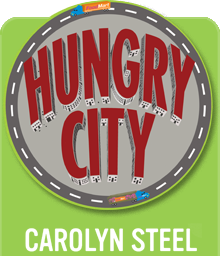One in Ten Sheep
Did you see that survey last week revealing that one in ten people in Britain can’t identify a sheep? It set me thinking…
The headline-grabbing wad of cash pledged by the recent G20 summit to kick-start the global economy is exacerbating, not solving, a problem. A system of flagrant mismanagement and opacity whose chief engine has been a fantasy lifestyle fuelled by the exploitation of people and resources, whose apparent ‘growth’ in fact turns out to have been a parallel fantasy, has been hauled back off the crash-pile and kick-started in the hope that, this time round, it will run a better race. But history tells us that it won’t. Like the Industrial Revolution before it, the global economy is a machine driven by its own internal logic. Social transformation is its by-product, not its goal.
When cash injections and financial regulation are the only language we can find to discuss what is ultimately a matter of human dwelling, we have a problem. Take living in cities, for example. These days, the notion that mass migration from rural to urban areas is both inevitable and inherently beneficial goes largely unchallenged. The trappings of urban life – a TV, a car, a washing machine – are thought to easily outweigh the disadvantages of rural poverty. What is less commonly admitted is that rural poverty is itself often the consequence of urban migration. In many parts of the world, living in the countryside is no longer an option precisely because the countryside has been transformed in order to feed cities. As for whether urban life is better than rural, why not ask the 26 million Chinese migrant workers who currently find themselves unemployed?
Which is where those sheep come in. How is it possible, in a nation like ours blessed with fertile agricultural land (70 percent covered in it, no less) that one in ten of us can’t recognise a sheep? OK, not everybody eats lamb or wears woolly jumpers any more; the point is that we live totally cut off from nature, from reality. Six hundred years ago, Britain was one of the richest nations on earth thanks to its superior sheep. Our woolly friends may not be the economic force they once were, but they can still mow the grass while fertilising the soil, make us smile as they frolic in the spring, provide us with winter clothes and delicious Sunday lunches.
The global economy is like an electronic trade-wind blowing miles above our heads. It affects us, not because it is directly connected to our lives, but precisely because it isn’t. Sheep, trillions of dollars: take your pick. It’s all about how we live, and what we value.











Leave a Comment